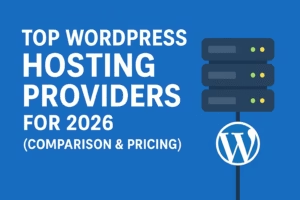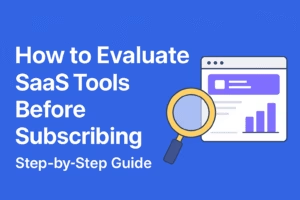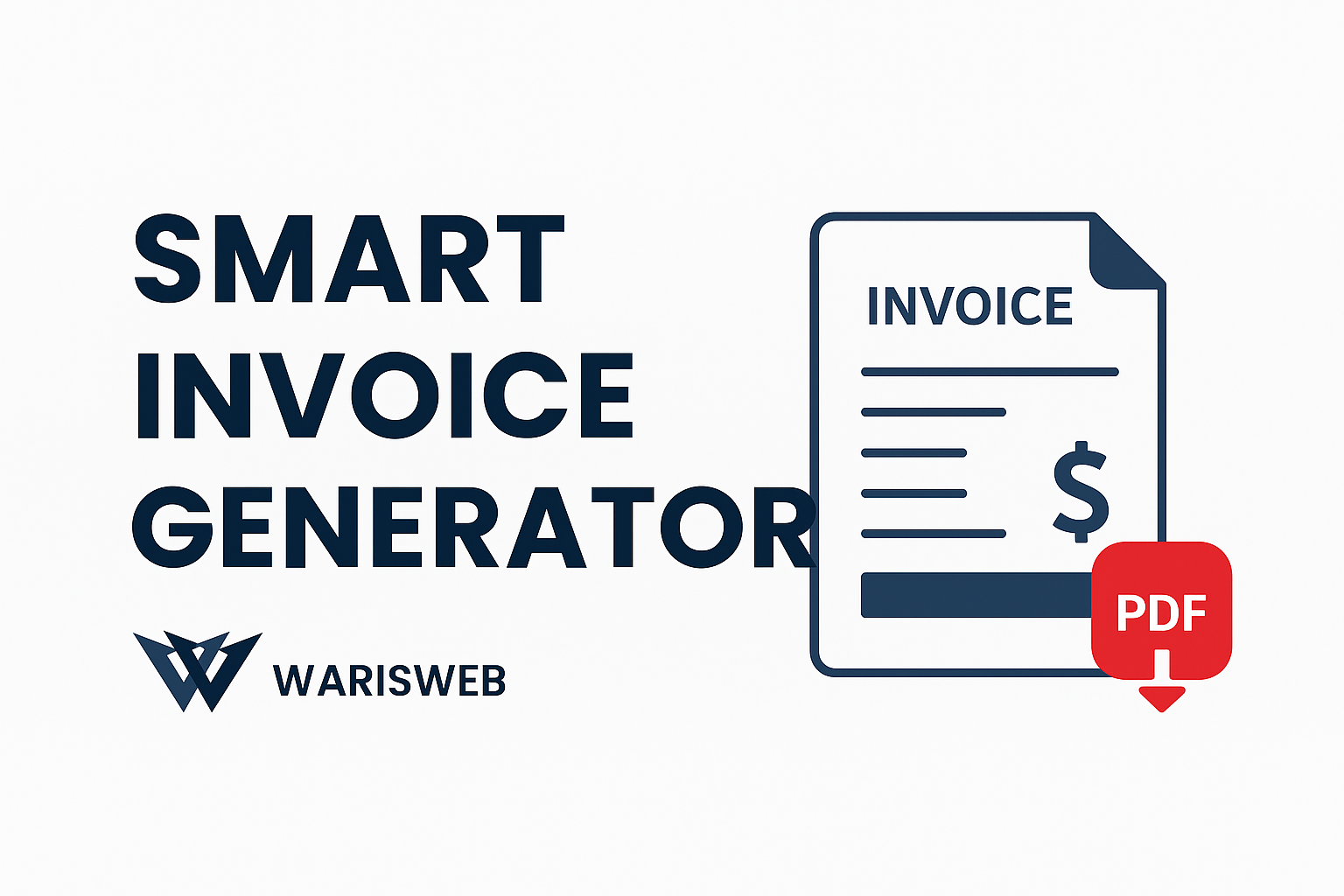Cloud Hosting vs VPS: Which is Better for Developers?

As a developer, you’ve probably found yourself staring at hosting options, wondering whether to go with cloud hosting or VPS. I get it—it’s not exactly the most exciting part of building something amazing, but choosing the wrong hosting can turn your brilliant app into a frustrating user experience.
After working with both hosting types across various projects, from small personal websites to high-traffic applications, I’ve learned that there’s no universal “better” option. It really depends on what you’re building, how much traffic you expect, and honestly, how much you want to think about server management.
Let me walk you through everything you need to know to make the right choice for your specific situation.
What is Cloud Hosting?
Think of cloud hosting as having your application spread across multiple servers that work together as one big system. Instead of your website living on a single machine, it’s distributed across what we call “the cloud”—a network of interconnected servers.
The magic happens when your app needs more resources. Let’s say you’re running a web application and suddenly get featured on Product Hunt. With traditional hosting, your server might crash from the traffic spike. With cloud hosting, additional servers automatically kick in to handle the load.
Cloud hosting has become incredibly popular, with 94% of enterprises now using cloud services in some capacity, and it typically reduces IT costs by 15-20% for most businesses. The pay-as-you-go pricing model means you only pay for the resources you actually use, which can be a game-changer for projects with unpredictable traffic patterns.
The redundancy built into cloud hosting also means better uptime. Major cloud providers achieve 99.99% uptime, compared to the 99.5% average you’ll typically see elsewhere.
What is VPS Hosting?
VPS (Virtual Private Server) hosting takes a different approach. Imagine a powerful physical server that’s been divided into separate virtual compartments. Each compartment acts like its own dedicated server, complete with its own operating system, resources, and full root access.
When you get a VPS, you’re essentially renting one of these virtual compartments. You get guaranteed resources—a specific amount of RAM, CPU power, and storage—that won’t be affected by other users on the same physical server.
VPS hosting is particularly popular among developers for SaaS products and startup projects, as it provides root access needed to test and deploy scalable applications. It’s also excellent for game servers, development sandboxes, and even AI and machine learning environments with high RAM requirements.
Cloud Hosting vs VPS – Key Differences
Let me break down the key differences in a way that actually matters for your development work:
Scalability: Cloud hosting wins hands down here. Need more CPU power because your API is getting hammered? It happens automatically. With VPS, you’re limited to whatever resources are available on that physical server. Scaling usually means migrating to a larger VPS plan, which often involves downtime.
Pricing Structure: This is where it gets interesting. Cloud hosting uses pay-as-you-go pricing, which sounds great until you realize that a traffic spike can result in an unexpected bill. VPS gives you predictable monthly costs—you know exactly what you’ll pay regardless of traffic fluctuations.
Reliability: Cloud providers make it possible to host websites closer to end users through their global infrastructure, which leads to faster loading times. If one server fails in the cloud, others take over seamlessly. With VPS, if your server goes down, your site goes down until it’s fixed.
Performance: Here’s where it depends on your use case. Cloud hosting excels with variable workloads—those unpredictable traffic patterns that startups often experience. VPS provides consistent performance that’s perfect for stable workloads where you know roughly what to expect.
Control: VPS gives you complete control over your environment. Want to install a specific version of Python or configure your web server in a particular way? No problem. Cloud hosting, especially managed services, sometimes limits what you can customize.
Pros & Cons of Cloud Hosting
The Good Stuff:
- Auto-scaling is genuinely magical. I’ve seen apps handle sudden viral traffic without breaking a sweat
- You only pay for what you use, which can save money for smaller projects
- High availability means better sleep at night—no 3 AM calls about your server being down
- Global deployment lets you serve users worldwide with minimal latency
The Not-So-Good:
- Costs can spiral if you’re not careful. I’ve heard horror stories of developers getting thousand-dollar bills after a traffic surge
- Complexity can be overwhelming for beginners. The AWS console alone has hundreds of services
- Vendor lock-in is real—migrating between cloud providers can be a nightmare
Pros & Cons of VPS Hosting
The Good Stuff:
- Complete control over your environment. Install whatever you want, configure however you like
- Predictable costs make budgeting straightforward. VPS plans typically range from $10-50 monthly for most development needs
- Better price-to-performance ratio for stable workloads
- Learning opportunity—managing a VPS teaches you valuable server administration skills
The Not-So-Good:
- Limited scalability means you need to plan for growth and manually upgrade
- Single point of failure—if your server has issues, your app goes down
- You’re responsible for security updates, monitoring, and maintenance
- Technical expertise required—you need to know your way around Linux and server management
Which is Better for Developers?
After working with both extensively, here’s my honest take on when to choose each:
Choose Cloud Hosting if…
You’re building something that might go viral or has unpredictable traffic. I learned this the hard way when a side project got featured on Hacker News and completely overwhelmed my VPS. Cloud hosting would have handled that spike effortlessly.
You want to focus on code, not servers. If server management feels like a distraction from building your actual product, cloud hosting’s managed services let you concentrate on what you do best.
You’re building a global application. Cloud hosting generally outperforms VPS hosting in scalability, reliability, and flexibility, making it ideal for dynamic websites and growing businesses.
You have budget flexibility. The pay-as-you-go model works well when you can absorb occasional cost spikes in exchange for never having to worry about capacity.
Choose VPS Hosting if…
You’re running stable, predictable workloads. Think portfolio sites, small business websites, or internal tools with known user counts. VPS hosting is particularly good for development teams using SSH and Git to deploy applications, offering isolated environments for security while enabling CI/CD pipeline compatibility.
You want predictable monthly costs. For bootstrapped startups or personal projects, knowing exactly what you’ll spend each month is invaluable.
You enjoy (or need to learn) server management. There’s real value in understanding how servers work, especially if you’re building your career in backend development.
You need specific configurations. Sometimes you need a particular setup that managed cloud services don’t offer.
Real-World Examples from My Experience
Let me share some concrete examples of when I’ve chosen each option:
Cloud hosting choice: I built a real-time chat application that needed to handle varying loads throughout the day. During business hours, usage spiked dramatically. Cloud hosting’s auto-scaling handled this perfectly, and I only paid for the extra capacity when it was actually needed.
VPS choice: For a client’s business website with consistent traffic and a tight budget, VPS was perfect. The site serves about 1,000 visitors daily with predictable patterns. A $20/month VPS has been running flawlessly for two years.
The Money Talk
Let’s be realistic about costs because this often drives the decision:
Cloud hosting packages average between $10-100 monthly, depending on the website’s needs, but that can vary dramatically based on usage. I’ve seen cloud bills range from $5 for a simple API to $500+ for high-traffic applications.
VPS hosting is more predictable. Quality VPS hosting for developers starts around $10-20 monthly for basic configurations, with significant savings possible on longer-term commitments.
For most developers starting out, VPS offers better value. For scaling businesses, cloud hosting’s flexibility often justifies the higher costs.
Making Your Decision
Here’s my framework for choosing:
- Start with your traffic patterns. Predictable = VPS. Unpredictable = Cloud.
- Consider your technical comfort level. New to server management? Cloud’s managed services are friendlier.
- Think about growth. Planning to scale rapidly? Cloud gives you more runway.
- Budget matters. Need predictable costs? VPS wins.
Don’t overthink it—you can always migrate later. Many successful applications started on VPS and moved to cloud hosting as they grew. The most important thing is to start building.
The Bottom Line
Neither cloud hosting nor VPS is universally “better”—they solve different problems. Cloud hosting excels at handling uncertainty and growth, while VPS provides control and predictability at a lower cost.
As a developer, your choice should align with your project’s characteristics, your technical preferences, and your budget constraints. Most importantly, don’t let hosting decisions paralyze you. Pick one, start building, and adjust as you learn what your application actually needs.
The best hosting solution is the one that lets you focus on creating something amazing without constantly worrying about whether your infrastructure can handle it.
Frequently Asked Questions?(FAQ's)
VPS typically offers more predictable and often lower costs for stable workloads, with plans starting around $10-20 monthly. Cloud hosting can be more cost-effective for applications with low or variable traffic due to its pay-as-you-go model, but costs can spike unexpectedly with high usage. For most small to medium projects, VPS tends to be more budget-friendly.
Yes, migration is definitely possible, though the complexity depends on your application architecture. Most migrations require some planning and may involve brief downtime. Cloud providers often offer migration tools and services to help with the transition. It’s generally easier to move from VPS to cloud than the reverse due to potential vendor lock-in issues.
Cloud hosting is often better for startups because it handles unpredictable traffic patterns and scaling needs without manual intervention. The ability to start small and automatically scale up as you grow makes it ideal for the uncertainty that most startups face. However, if budget is extremely tight and traffic is predictable, VPS can be more cost-effective.
Not at all. VPS hosting remains a highly relevant and cost-effective choice for many developers and businesses. It’s particularly valuable for stable applications, development environments, and situations where you need full control over your server configuration. Many successful companies continue to use VPS hosting because it perfectly meets their needs without the complexity or variable costs of cloud hosting.








